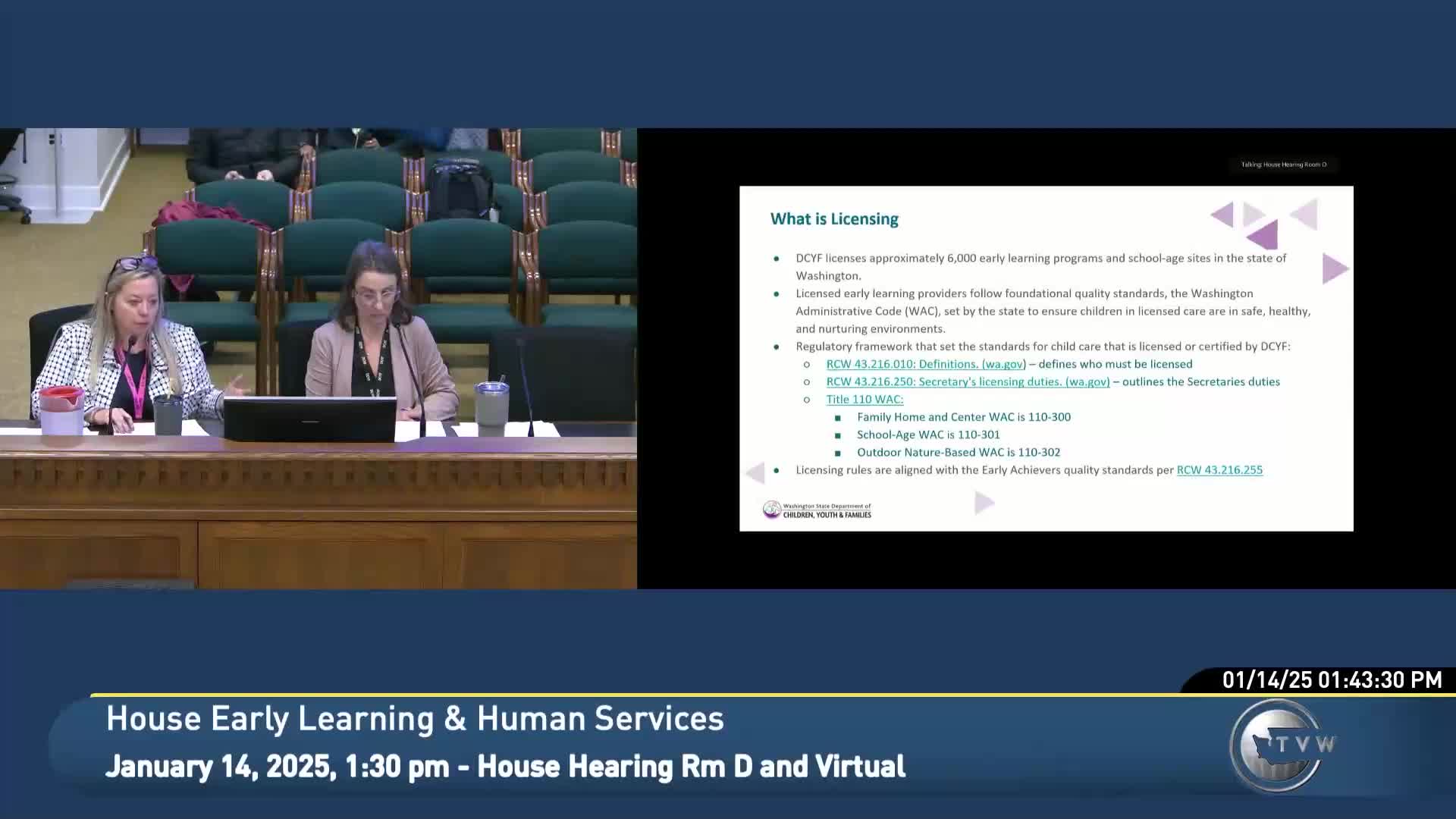JLARC finds alternative-fuel tax preferences coincide with EV growth but impact unclear
Get AI-powered insights, summaries, and transcripts
Subscribe
Summary
A JLARC review told the House Finance Committee that Washington’s eight tax preferences aimed at encouraging alternative-fuel vehicles have coincided with large increases in electric vehicles and chargers but that the preferences’ direct effect is unclear amid market and federal incentives.
The state’s Legislative Auditor told the House Finance Committee on Jan. 14 that eight tax preferences intended to increase alternative-fuel vehicle adoption in Washington have coincided with a large increase in alternative-fuel vehicles and charging infrastructure — but that the preferences’ direct impact remains unclear.
Pete Van Moorsel, staff to the Joint Legislative Audit and Review Committee (JLARC), said the eight preferences together are estimated to reduce state revenue by about $98 million in the current biennium and that the single largest preference is a sales-and-use-tax exemption for qualifying alternative-fuel vehicles that accounts for about $53 million of that total.
"The legislative auditor recommends that the legislature determine whether to continue these 8 tax preferences," Van Moorsel said. "The objective is accomplished, but the performance statement did not state, or direct the auditor's recommendation in the case it was accomplished."
JLARC’s presentation said the number of alternative-fuel vehicles titled in the state increased about 230% over the review period, but just over 40,000 vehicles reported Department of Revenue claims under the exemption during that time. JLARC staff noted other influences: falling prices and greater model availability for electric vehicles, increased federal and state incentives, and rapid growth in public charging infrastructure (more than 3,000 additional public electric chargers reported during the review period).
The committee heard that the primary vehicle exemption is a partial exemption that phases down every two years, and that qualifying vehicles must meet price and range limits (new vehicle price cap $45,000, used cap $30,000; plug-in hybrids must have an electric range of at least 30 miles). Van Moorsel said the exemption’s dollar cap was $15,000 at the time of review and was scheduled to expire in August of the year noted in the report.
Representative Bridal asked about nonzero-emission fuels such as natural gas and propane. Van Moorsel said the clean alternative fuel definition includes those fuels, but Department of Licensing registration data show the vast majority of qualifying registrations are electric or plug-in hybrids; natural-gas vehicles account for a very small share (about 1,300 statewide in the related review referenced).
JLARC recommended that, if the Legislature opts to continue the preferences, it should clarify at what level the partial exemption should continue and consult the Electric Vehicle Coordinating Council, chaired by the Departments of Commerce and Transportation, when drafting amendments. The Department of Commerce provided feedback supporting consultation and suggested shifting limited funds from tax expenditures to direct rebate programs and aligning tax exemptions with Commerce’s instant-rebate program.
The committee did not take formal action on the JLARC recommendation during the presentation; members asked questions and requested follow-up information to inform potential legislation during the session.
Less urgent details: JLARC said two of the 2024 reviews were of preferences not previously evaluated, and that the Citizen Commission for Performance Measurement of Tax Preferences hears public testimony after JLARC’s preliminary reports were issued. The commission concurred with five of six JLARC recommendations in 2024.
